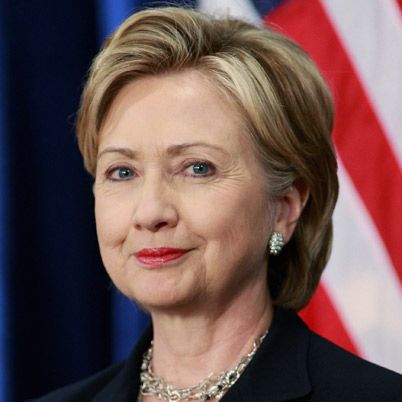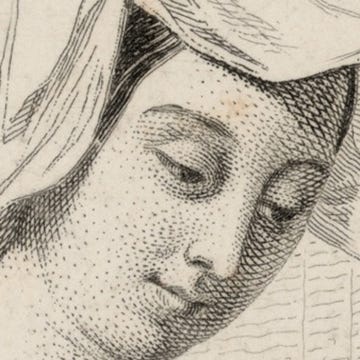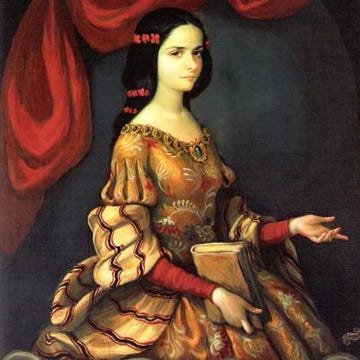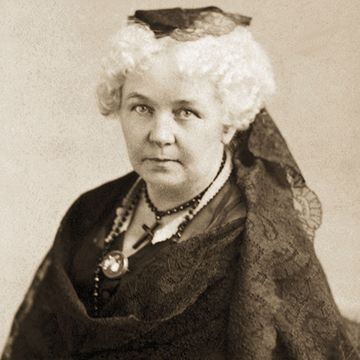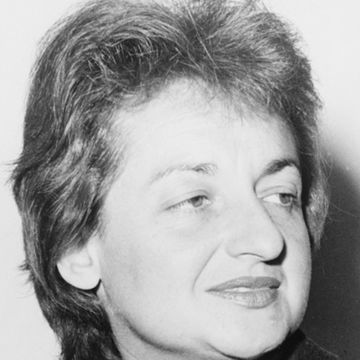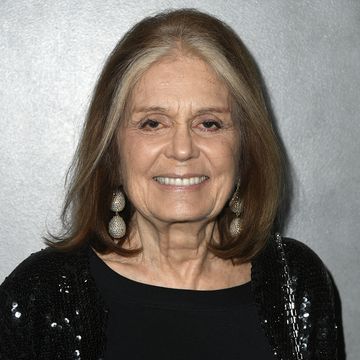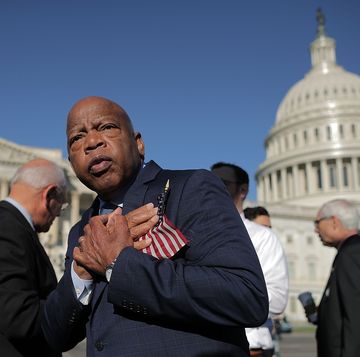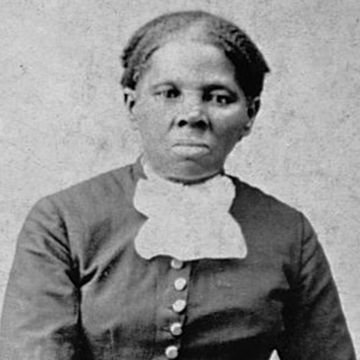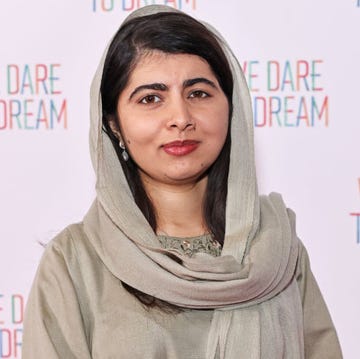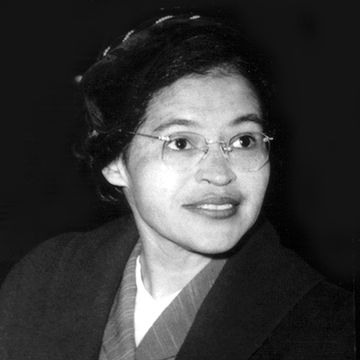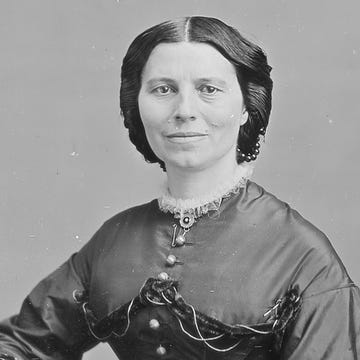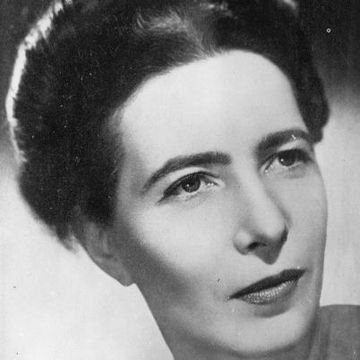(1947-)
Jump to:
- Who Is Hillary Clinton?
- Quick Facts
- Early Life
- Education and Early Career
- Marriage to Bill Clinton
- First Lady
- Senate Win and Presidential Run
- U.S. Secretary of State
- Health Issues
- Benghazi Testimony and Resignation
- Mother-in-Law and Grandmother
- Bid for 2016 Presidency
- Campaign Issues
- Email Scandal
- Trailblazing Nominee
- DNC Email Leak
- Historic Moment: Hillary Clinton Accepts Democratic Nomination for President
- Historic Newspaper Endorsements
- Election Upset & Concession
- Russia Discovered Behind Email Leaks
- Post-2016 Campaign
- Books and Documentary
Who Is Hillary Clinton?
Hillary Clinton was born in Chicago and went on to earn her law degree from Yale University. She married fellow law school graduate Bill Clinton in 1975. She later served as first lady from 1993 to 2001, and then as a U.S. senator from 2001 to 2009. In early 2007, Clinton announced her plans to run for the presidency. During the 2008 Democratic primaries, she conceded the nomination when it became apparent that Barack Obama held a majority of the delegate vote. After winning the national election, Obama appointed Clinton secretary of state. She was sworn in as part of his cabinet in January 2009 and served until 2013. In the spring of 2015, she announced her plans to run again for the U.S. presidency. In 2016, she became the first woman in U.S. history to become the presidential nominee of a major political party. After a polarizing campaign against GOP candidate Donald Trump, Clinton was defeated in the general election that November.
Quick Facts
FULL NAME: Hillary Diane Rodham Clinton
BORN: October 26, 1947
BIRTHPLACE: Chicago, Illinois
SPOUSE: Bill Clinton (m. 1975)
CHILDREN: Chelsea Clinton
ASTROLOGICAL SIGN: Scorpio
Early Life
Hillary was born Hillary Diane Rodham on October 26, 1947, in Chicago, Illinois. She was raised in Park Ridge, Illinois, a picturesque suburb located 15 miles northwest of downtown Chicago.
Hillary was the eldest daughter of Hugh Rodham, a prosperous fabric store owner, and Dorothy Emma Howell Rodham; she has two younger brothers, Hugh Jr. (born in 1950) and Anthony (born in 1954).
As a young woman, Hillary was active in young Republican groups and campaigned for Republican presidential nominee Barry Goldwater in 1964. She was inspired to work in public service after hearing a speech in Chicago by the Reverend Martin Luther King Jr., and became a Democrat in 1968.
Education and Early Career
Hillary attended Wellesley College, where she was active in student politics and elected senior class president before graduating in 1969. She then attended Yale Law School, where she met Bill Clinton. Graduating with honors in 1973, she went on to enroll at Yale Child Study Center, where she took courses on children and medicine and completed one post-graduate year of study.
Hillary worked at various jobs during her summers as a college student. In 1971, she first came to Washington, D.C. to work on U.S. Senator Walter Mondale's sub-committee on migrant workers. In the summer of 1972, she worked in the western states for the campaign of Democratic presidential nominee George McGovern.
In the spring of 1974, Hillary became a member of the presidential impeachment inquiry staff, advising the Judiciary Committee of the House of Representatives during the Watergate Scandal.
After President Richard M. Nixon resigned in August, she became a faculty member of the University of Arkansas Law School in Fayetteville, where her Yale Law School classmate and boyfriend Bill was teaching as well.
Marriage to Bill Clinton
Hillary married Bill on October 11, 1975, at their home in Fayetteville. Before he proposed marriage, Bill had secretly purchased a small house that she had remarked that she liked. When he proposed marriage to her and she accepted, he revealed that they owned the house. Their daughter, Chelsea Victoria, was born on February 27, 1980.
In 1976, Clinton worked on Jimmy Carter's successful campaign for president her husband Clinton was elected attorney general. Bill was elected governor in 1978 at age 32, lost reelection in 1980, but came back to win in 1982, 1984, 1986 (when the term of office was expanded from two to four years) and 1990.
Clinton joined the Rose Law Firm in Little Rock and, in 1977, was appointed to part-time chairman of the Legal Services Corporation by President Carter. As first lady of the state for a dozen years (1979-1981, 1983-1992), she chaired the Arkansas Educational Standards Committee, co-founded the Arkansas Advocates for Children and Families, and served on the boards of the Arkansas Children's Hospital, Arkansas Legal Services and the Children's Defense Fund. She also served on the boards of TCBY and Wal-Mart.
In 1988 and 1991, The National Law Journal named her one of the 100 most powerful lawyers in America.
First Lady
During her husband's 1992 presidential campaign, Clinton emerged as a dynamic and valued partner of her husband, and as president, he named her to head the Task Force on National Health Reform (1993). The controversial commission produced a complicated plan which never came to the floor of either house. It was abandoned in September 1994.
During this period, she and her husband invested in the Whitewater real estate project. The project's bank, Morgan Guaranty Savings and Loan, failed, costing the federal government $73 million. Whitewater later became the subject of congressional hearings and an independent counsel investigation.
In 1998, the White House was engulfed in the Monica Lewinsky sex scandal. Though she publicly supported her husband, Hillary reportedly considered leaving her marriage. He was impeached, but the U.S. Senate failed to convict and he remained in office.
Senate Win and Presidential Run
In 1999, Clinton decided she would seek the U.S. Senate seat from New York held by Daniel Patrick Moynihan, who was retiring after four terms. Despite early problems and charges of carpetbagging, Clinton beat popular Republican Rick Lazio by a surprisingly wide margin: 55 percent to 43 percent. Clinton became the first wife of a president to seek and win public office and the first woman to be elected to the U.S. Senate from New York. She easily won reelection in November 2006.
In early 2007, Clinton announced her plans to strive for another first—to be the first female president. During the 2008 Democratic primaries, Senator Clinton conceded the nomination when it became apparent that nominee Barack Obama held a majority of the delegate vote. When Clinton suspended her campaign, she made a speech to her supporters. "Although we were not able to shatter that highest and hardest glass ceiling this time, thanks to you it has 18 million cracks in it," she said, "and the light is shining through like never before, filling us all with the hope and the sure knowledge that the path will be a little easier next time, and we are going to keep working to make it so, today keep with me and stand for me, we still have so much to do together, we made history, and lets make some more."
U.S. Secretary of State
Shortly after winning the U.S. presidential election, Obama nominated Clinton as secretary of state. She accepted the nomination and was officially approved as the 67th U.S. secretary of state by the Senate on January 21, 2009.
During her term, Clinton used her position to make women's rights and human rights a central talking point of U.S. initiatives. She became one of the most traveled secretaries of state in American history, and promoted the use of social media to convey the country's positions. She also led U.S. diplomatic efforts in connection to the Arab Spring and military intervention in Libya.
The State Department, under Clinton's leadership, came under investigation after a deadly attack on a U.S. diplomatic post in Benghazi, Libya, killed U.S. ambassador Christopher Stevens and three others on September 11, 2012. An independent panel issued a report about the Benghazi attack, which found "systematic failures and leadership and management deficiencies" at the State Department.
Health Issues
Clinton, who said she took responsibility for security at the outpost in Benghazi, was scheduled to testify about the attack before Congress in December 2012. She canceled her scheduled testimony, however, citing a stomach virus and, later, a concussion that she suffered after fainting (the cause of which was later reported as dehydration). Some members of Congress questioned the timing of her illnesses, including Representative Allen West, who stated that he believed the secretary of state was suffering from "a case of Benghazi flu" on the day she was scheduled to testify.
On December 30, 2012, Clinton was hospitalized with a blood clot related to the concussion that she had suffered earlier in the month. She was released from a New York hospital on January 2, 2013, after receiving treatment, and soon recovered and returned to work.
Benghazi Testimony and Resignation
Clinton testified about the Benghazi attack on January 23, 2013. Speaking to members of the House Foreign Relations Committee, she defended her actions while taking full responsibility for the incident, which killed four American citizens. "As I have said many times since September 11, I take responsibility, and nobody is more committed to getting this right," she told the House. She added, "I am determined to leave the State Department and our country safer, stronger and more secure."
After taking office in 2009, she repeatedly stated that she was only interested in serving one term as secretary of state. She stepped down from her post on February 1, 2013.
In May 2014, the House Select Committee on Benghazi, chaired by Representative Trey Gowdy from South Carolina, was created to investigate the Benghazi attack. Clinton testified in front of the committee on October 22, 2015, in a nearly 11-hour hearing. The House Select Committee on Benghazi issued its final report on June 28, 2016. The just over 800-page report found no new evidence of wrongdoing on her part, but was critical of "government agencies like the Defense Department, the Central Intelligence Agency and the State Department — and the officials who led them — for failing to grasp the acute security risks in the Libyan city, and especially for maintaining outposts in Benghazi that they could not protect," according to The New York Times.
The Democrats on the committee issued their own 339-page minority report that criticized Republicans for "one of the longest and most partisan congressional investigations in history" that took two years to complete and cost "$7 million in taxpayer funds."
"We have been hampered in our work by the ongoing Republican obsession with conspiracy theories that have no basis in reality," the minority report stated. "Rather than reject these conspiracy theories in the absence of evidence — or in the face of hard facts — Select Committee Republicans embraced them and turned them into a political crusade."
Mother-in-Law and Grandmother
In 2010, the Clintons' daughter Chelsea married former Goldman Sachs investment banker and current hedge fund manager Marc Mezvinksy.
On September 26, 2014, Clinton became a first-time grandmother when daughter Chelsea gave birth to Charlotte Clinton Mezvinsky. Chelsea gave birth to her second child, Aidan Clinton Mezvinsky, on June 18, 2016, and to son Jasper Clinton Mezvinsky on July 22, 2019.
Bid for 2016 Presidency
After much speculation and assumptions over whether she would run for the U.S. presidency, Clinton's plans were made official in the spring of 2015. On April 12, her campaign chairperson John D. Podesta announced via email that the former secretary of state was entering the race to secure the Democratic presidential nomination for the 2016 elections. This was immediately followed by an online campaign clip, with Clinton herself announcing that she was running for president.
Campaign Issues
On her campaign site, Clinton addressed a wide variety of issues: lowering student debt, criminal justice reform, campaign finance reform, improving the healthcare coverage and costs of the Affordable Care Act (a.k.a. Obamacare), and women's rights.
However, the candidate was also known for her changing stances on various hot button issues, including her evolving support of gay marriage and her souring on the Trans Pacific Partnership. In regard to the environment, Clinton had a plan to combat climate change but also faced questions from environmental activists for supporting fracking. She also supported the death penalty but claimed it should be implemented in exceptional cases.
Email Scandal
In early March 2015, Clinton faced controversy and criticism when it was revealed that she had used her personal email address to handle official governmental business during her time as secretary of state. In a news conference held at the United Nations, speaking initially on gender equality and the political situation in Iran, Clinton stated that she had utilized her personal email for convenience as allowed by state department protocol. She later turned over all governmental correspondence to the Obama administration while deleting messages that could be construed as personal.
In May 2016, the State Department issued a statement regarding Clinton's ongoing email scandal. The department criticized her for not seeking permission to use a private email server and also stated it would not have approved it if she had. The 79-page report, along with a separate FBI investigation and other legal matters that involved her private email account, exacerbated Clinton's controversial political reputation and became fodder for Republican officials.
After a year-long FBI investigation of Clinton’s email practices while she was secretary of state, FBI Director James Comey announced on July 5, 2016, that the agency would not recommend criminal charges against Clinton. “Our judgment is that no reasonable prosecutor would bring such a case,” Comey said at a news conference. He added: ”Although we did not find clear evidence that Secretary Clinton or her colleagues intended to violate laws governing the handling of the classified information, there is evidence that they were extremely careless in their handling of very sensitive, highly classified information."
The following day Attorney General Loretta Lynch released a statement saying that she would accept the FBI’s recommendation and Clinton would not be charged in the case. “Late this afternoon, I met with FBI Director James Comey and career prosecutors and agents who conducted the investigation of Secretary Hillary Clinton’s use of a personal email system during her time as Secretary of State,” Lynch wrote in the statement. “I received and accepted their unanimous recommendation that the thorough, year-long investigation be closed and that no charges be brought against any individuals within the scope of the investigation.”
Clinton’s email troubles resurfaced on October 28, 2016, when Comey revealed in a letter to Congress that while investigating disgraced former Congressman Anthony Weiner for texts he had sent to a 15-year-old girl, law enforcement officials had found emails that appeared “to be pertinent” to the closed investigation of Clinton’s use of a personal email server. The emails were reportedly sent by Huma Abedin, Weiner’s wife and Clinton’s top aide, to Clinton’s personal server, but the content of the emails was unknown.
The timing of Comey’s letter, just 11 days before the election, was unprecedented and critics called for the FBI to release more information. A bipartisan group of almost one hundred former federal prosecutors and Justice Department officials also signed a letter criticizing Comey. “We cannot recall a prior instance where a senior Justice Department official — Republican or Democrat — has, on the eve of a major election, issued a public statement where the mere disclosure of information may impact the election’s outcome, yet the official acknowledges the information to be examined may not be significant or new,” the letter stated.
On November 6, just two days before the election, Comey wrote another letter to Congress stating that Clinton should not face criminal charges after a review of the new emails. "Based on our review, we have not changed our conclusions that we expressed in July," Comey wrote in the letter.
Trailblazing Nominee
On June 6, 2016, Clinton was hailed as the presumptive presidential nominee for the Democratic Party and the first woman in the United States' 240-year history "to top the presidential ticket of a major U.S. political party," according to the Associated Press. The assessment was based on Clinton winning the support of a combination of pledged delegates and superdelegates needed to win the nomination.
On June 7, the night of the final Super Tuesday primary, Clinton delivered a speech from the Brooklyn Navy Yard, acknowledging the historic achievement. It was eight years to the day since she had conceded her loss to Barack Obama in the 2008 presidential race.
“Tonight’s victory is not about one person,” Clinton told a crowd of supporters. ”It belongs to generations of women and men who struggled and sacrificed and made this moment possible. In our country, it started right here in New York, a place called Seneca Falls in 1848 where a small but determined group of women and men came together with the idea that women deserved equal rights and they set it forth in something called the Declaration of Sentiments and it was the first time in human history that that kind of declaration occurred. So we all owe so much to those who came before and tonight belongs to all of you.”
Clinton also acknowledged the impact of her Democratic opponent Bernie Sanders’ campaign: “I want to congratulate Senator Sanders for the extraordinary campaign he has run. He’s excited millions of voters, especially young people. And let there be no mistake: Senator Sanders, his campaign, and the vigorous debate that we’ve had—about how to raise incomes, reduce inequality, increase upward mobility—have been very good for the Democratic Party and for America.”
She also addressed the campaign of Republican presidential nominee Donald Trump, whom she called “temperamentally unfit to be President and Commander-in-Chief.” “He’s not just trying to build a wall between America and Mexico; he’s trying to wall off Americans from each other,” she said. “When he says, ‘Let’s make America great again,’ that is code for ‘Let’s take America backwards.’ Back to a time when opportunity and dignity were reserved for some, not all.”
Clinton personalized her rhetoric when she spoke about her mother Dorothy, “the biggest influence in her life,” who died in 2011: "This past Saturday would have been her 97th birthday. She was born on June 4th, 1919 and some of you may know the significance of that date. On the very day my mother was born in Chicago, Congress was passing the 19th amendment to the constitution. That amendment finally gave women the right to vote. And I really wish my mother could be here tonight ... I wish she could see her daughter become the Democratic party's nominee."
On July 12, 2016, just two weeks before the Democratic National Convention in Philadelphia, Sanders endorsed Clinton at a rally in Portsmouth, New Hampshire. "This campaign is not really about Hillary Clinton, or Donald Trump or Bernie Sanders, or any other candidate who sought the presidency," Sanders told the crowd. "This campaign is about the needs of the American people and addressing the very serious crises that we face ... And there is no doubt in my mind that, as we head into November, Hillary Clinton is far and away the best candidate to do that."
On July 22, 2016, Clinton announced via text message to her supporters that she had selected Tim Kaine, a Virginia senator and former Virginia governor and mayor, as her vice presidential running mate.
DNC Email Leak
In July 2016, on the eve of the Democratic National Convention in Philadelphia, Wikileaks published over nineteen thousand DNC emails that revealed how officials seemingly favored Clinton over Sanders and sought to undermine his campaign.
The leak also showed the bitter tension between DNC chair Debbie Wasserman Schultz and Sanders' campaign manager Jeff Weaver, the collusion between the DNC and the media, and the ways in which officials persuade big money donors.
As a result of the leak, Wasserman Schultz announced she would not be speaking at the convention and would step down as DNC chair.
During this time, an FBI investigation was underway to discover who was responsible for the leaks, although intelligence was already pointing to Russia being behind the cyberattacks.
Historic Moment: Hillary Clinton Accepts Democratic Nomination for President
The release of the emails by Wikileaks during the Democratic National Convention was a blow to what party officials had hoped would be a time to unify and energize their base of supporters. The scandal reinvigorated the ire of Sanders' supporters, many of whom felt the DNC had rigged the election for Clinton from the start. Nonetheless, even amid protests, Clinton received an array of support from political allies, delegates, celebrities and everyday citizens in a series of convention speeches, including Barack and Michelle Obama, actresses Meryl Streep and Elizabeth Banks and former New York mayor Michael Bloomberg.
After being introduced by daughter Chelsea, Clinton utilized the DNC's final night to officially accept her party's nomination for president, a historic achievement for women in the U.S., and then delineate aspects of her platform and national vision.
Historic Newspaper Endorsements
In September 2016, The Arizona Republic made a surprising announcement: it was endorsing a Democrat for the first time in its publication's history. The editorial board's decision to support Clinton was explained as follows:
“Since 'The Arizona Republic' began publication in 1890, we have never endorsed a Democrat over a Republican for president. Never. This reflects a deep philosophical appreciation for conservative ideals and Republican principles.
This year is different.
The 2016 Republican candidate is not conservative and he is not qualified.
That’s why, for the first time in our history, The Arizona Republic will support a Democrat for president.”
The paper's unprecedented announcement came on the heels of The Cincinnati Enquirer and The Dallas Morning News' similar decision to break with their longstanding Republican roots by endorsing Clinton over Trump.
Election Upset & Concession
As the returns rolled in, Clinton’s path to victory faded. Late into the evening, her defeat became clear when Trump earned the required majority of electoral votes. Breaking with political tradition, she declined to give a concession speech when the race was called but phoned Trump to concede.
The following afternoon Clinton delivered an emotional concession speech in which she congratulated Trump and said she "offered to work with him on behalf of our country."
"Our campaign was never about one person, or even one election," Clinton told her supporters. "It was about the country we love and building an America that is hopeful, inclusive, and big-hearted. We have seen that our nation is more deeply divided than we thought. But I still believe in America, and I always will. And if you do, then we must accept this result and then look to the future. Donald Trump is going to be our president. We owe him an open mind and the chance to lead. Our constitutional democracy enshrines the peaceful transfer of power."
Clinton also addressed falling short of becoming the first female president of the United States: "I know we have still not shattered that highest and hardest glass ceiling, but someday, someone will, and hopefully sooner than we might think right now."
Clinton concluded her speech quoting Biblical scripture. "You know, scripture tells us, let us not grow weary of doing good, for in good season we shall reap. My friends, let us have faith in each other, let us not grow weary and lose heart, for there are more seasons to come and there is more work to do."
Despite losing the electoral vote, Clinton won the popular vote by a margin of almost three million, garnering more votes than any other candidate in U.S. history besides Obama.
Russia Discovered Behind Email Leaks
For months prior to the U.S. presidential election, well over a dozen U.S. intelligence agencies unilaterally concluded that Russia was behind the email hacks that were given to Wikileaks. In December 2016, the CIA, the FBI, and the NSA publicly concluded that Russian operatives, under orders from President Vladimir Putin, were behind the cyberattacks at the DNC and of Clinton campaign chairman John Podesta's personal email account. The three agencies asserted that not only was Russia trying to undermine the U.S. presidential election but was also aiming to harm Clinton's campaign and to tip the scales for her Republican opponent.
Soon after these assessments came out, Clinton spoke about Russia's impact on her campaign at a private event. She blamed both Russia's email hacks, as well as FBI Director James Comey for issuing the letter concerning the investigation over her email server just days before the election.
On Putin, she said: "Vladimir Putin himself directed the covert cyberattacks against our electoral system, against our democracy, apparently because he has a personal beef against me," Clinton stated via The New York Times. (The "beef" she referred to went back to her speaking out against Putin's unfair parliamentary elections in 2011 when she was secretary of state.)
Clinton also gave light to the larger, more pressing issues at stake. “This is not just an attack on me and my campaign ... This is an attack against our country. We are well beyond normal political concerns here. This is about the integrity of our democracy and the security of our nation.”
Post-2016 Campaign
After taking time to decompress from the campaign, Clinton resurfaced in May 2017 to co-found the political action organization Onward Together. In September, she published What Happened, an attempt to rationalize the many factors that contributed to her election defeat.
Clinton continued to levy criticism at Donald Trump on social media, usually earning a rebuke or a mocking reply from the president's camp. In January 2018, she drew a laugh at the Grammys for a segment in which she read from Fire and Fury, a book that revealed the behind-the-scenes chaos within the Trump campaign and White House.
Not all the news was positive; shortly before the Grammys, a report surfaced that a senior adviser to Clinton’s 2008 presidential campaign had been accused of repeatedly sexually harassing a subordinate. According to the report, Clinton was aware of the accusations but did not fire the adviser, instead choosing to dock his pay and send him to counseling.
The former first lady continued appearing at events, opining about the state of politics and her role in it. At Rutgers University in March, she was asked how she felt about some in the media telling her to "get off the public stage and shut up."
"I was really struck by how people said that to me — you know, mostly people in the press, for whatever reason — mostly, 'Go away, go away,'" she responded. "And I had one of the young people who works for me go back and do a bit of research. They never said that to any man who was not elected. I was kind of struck by that."
In July 2018, a New York Post columnist speculated that Clinton was planning to run for president again in 2020, based on the "urgency" of her emails to political supporters and the ongoing fundraising efforts of her super PACs. The rumor was enough to draw Fox News' Fox and Friends away from covering the rescue of a soccer team trapped in a flooded cave in Thailand to address the issue.
Clinton ultimately declined to seek the 2020 nomination, though she remained in the periphery of the campaigning, drawing the ire of Tulsi Gabbard in October 2019 for calling the Hawaii congresswoman the "favorite of the Russians" (Gabbard later filed a $50 million defamation lawsuit). Around that time, the subject of Clinton's emails resurfaced with the release of a State Department report that found "no persuasive evidence of systemic, deliberate mishandling of classified information."
Books and Documentary
Among the many books Clinton has penned, some of her more notable ones include: It Takes a Village: And Other Lessons Children Teach Us (1996), Living History (2003) and Hard Choices (2014).
The former senator and secretary of state was the subject of a four-hour Hulu documentary, Hillary, which premiered at the 2020 Sundance Film Festival.
Fact Check: We strive for accuracy and fairness. If you see something that doesn't look right, contact us!
QUOTES
- We need to understand that there is no formula for how women should lead their lives. that is why we must respect the choices that each woman makes for herself and her family. Every woman deserves the chance to realize her God-given potential.
- You show people what you're willing to fight for when you fight your friends.
- Everything that happens in America happens in New York.
- I am determined to leave the State Department and our country safer, stronger and more secure.
- Faith is like stepping off a cliff and expecting one of two outcomes- you will either land on solid ground or you will be taught to fly.
- Don't confuse having a career with having a life. They are not the same thing.
- Home is a child's first and most important classroom.
- Too many women, in too many countries speak the same language, of silence.
- It took a Clinton to clean up after the first Bush, it may take another Clinton to clean up after the second one.
- Take criticism seriously, but not personally. If there is truth or merit in the criticism, try to learn from it. Otherwise, let it roll right off you.
- Every moment wasted looking back keeps us from moving forward.
- I would say that I personally was not focused on talking points, I was focused on keeping our people safe.
- Yes, there are still ceilings to break for women and men for all of us. But don't let anyone tell you that great things can't happen in America. Barriers can come down. Justice and equality can win. Our history has moved in that direction. Thanks to generations of Americans who refuse to give up or back down.
- We are stronger when we work with our allies and we're stronger when we respect each other, listen to each other and act with a sense of common purpose. We're stronger when every family and every community knows they're not on their own. Because we are in this together. It really does take a village to raise a child. And to build a stronger future for us all.
- [My mother] was the rock from the day I was born until she left us. She overcame a childhood marked by abandonment and mistreatment and somehow managed not to become bitter or broken. My mother believed that life is about serving others. And she taught me never to back down from a bully which it turns out was pretty good advice.
- To be great, we can't be small. We have to be as big as the values that define America. And we are a big hearted, fair minded country. We teach our children that is one nation under god indivisible with liberty and justice for all. Not just for people who look a certain way or worship a certain way or love a certain way. For all, indivisible.
- This loss hurts, but please never stop believing that fighting for what's right is worth it.
- To all the little girls who are watching this, never doubt that you are valuable and powerful and deserving of every chance and opportunity in the world to pursue and achieve your own dreams.
The Biography.com staff is a team of people-obsessed and news-hungry editors with decades of collective experience. We have worked as daily newspaper reporters, major national magazine editors, and as editors-in-chief of regional media publications. Among our ranks are book authors and award-winning journalists. Our staff also works with freelance writers, researchers, and other contributors to produce the smart, compelling profiles and articles you see on our site. To meet the team, visit our About Us page: https://www.biography.com/about/a43602329/about-us
